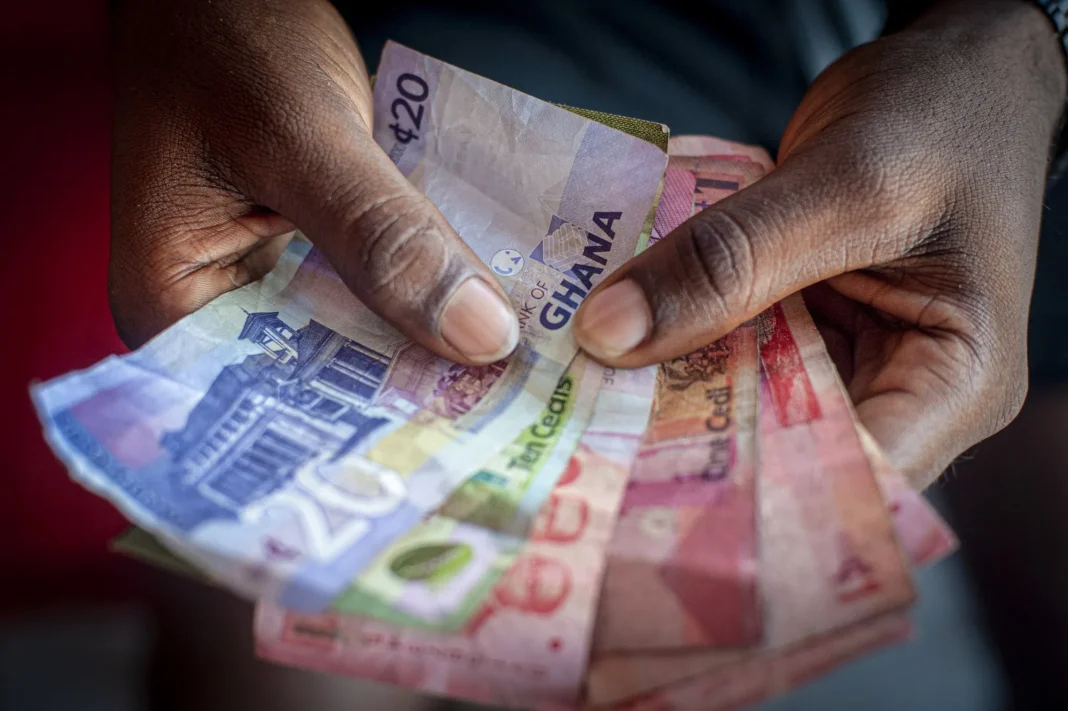Ghana’s cedi has emerged as the world’s strongest-performing currency in 2025, appreciating nearly 50% against the US dollar since the start of the year. Beginning the year at around ₵15 to the dollar, the cedi has climbed steadily to trade just above the ₵10 mark, bolstered by improved investor sentiment and a wave of positive economic developments.
The rally has been underpinned by Ghana’s ongoing recovery from its recent debt default and economic turmoil. Investors have responded positively to the country’s strengthening fundamentals, particularly its performance in gold and oil exports, and its ongoing support from the International Monetary Fund (IMF). On Monday, the cedi opened at GH₵10.21, reflecting a 7% rise from the previous Friday’s close of GH₵10.25.
According to Bloomberg data, no other currency has matched the cedi’s gains this year. The turnaround is striking, considering that in 2022, the cedi was the world’s worst-performing currency, having lost over 55% of its value during a severe inflation crisis and sovereign debt troubles.
Falling inflation has played a critical role in stabilising the cedi, with the rate easing to 21.2% in April. The Bank of Ghana (BoG) has pursued a firm monetary policy stance to support the currency, including a surprise 100-basis point rate hike in March, raising the policy rate to 28%. These moves have been aimed at curbing inflation and attracting foreign investment.
In parallel, the central bank transitioned to spot-market forex auctions, moving away from speculative controls. This shift has enhanced dollar liquidity and curbed dollar hoarding, which had previously disrupted the foreign exchange market.

Ghana’s export earnings have been buoyed by record-high gold prices, which surged from $2,000 per ounce in 2024 to $3,400 in May 2025. The country, now the sixth-largest gold producer globally, saw gold export revenue rise from $7.6 billion in 2023 to $11.6 billion in 2024. The Gold Board’s policy requiring domestic gold purchases to be settled in cedis prior to export also played a vital role, boosting Ghana’s gold reserves from 9 tonnes in late 2023 to 31 tonnes today. Consequently, foreign reserves hit a record $11.4 billion in March 2025.
Oil and non-traditional exports have further supported Ghana’s external position, pushing its trade surplus to a long-term high of $4.3 billion in 2024.
The IMF’s $3 billion bailout, part of a three-year programme, has provided essential financial and technical support, focusing on restoring macroeconomic stability through demand-management reforms. Fiscal consolidation measures, such as suspending ₵65 billion in arrears payments and slashing Treasury bill yields from 28% to 15%, have helped ease debt concerns and re-energised investor confidence.
President Mahama’s administration has been credited with introducing sweeping reforms that have maintained political stability, another key factor in the cedi’s recent resurgence.
Despite the optimism, policymakers remain cautious. Bank of Ghana Governor Johnson Asiama has warned against complacency, stating, “Stability doesn’t mean fixation,” and highlighting the need to balance currency strength with export competitiveness. Economists have also noted that while the recovery is impressive, the BoG may delay monetary easing due to rising utility prices and lingering inflationary risks. With inflation still above the central bank’s 6–10% target band, premature rate cuts could threaten recent gains and expose the cedi to renewed volatility.
